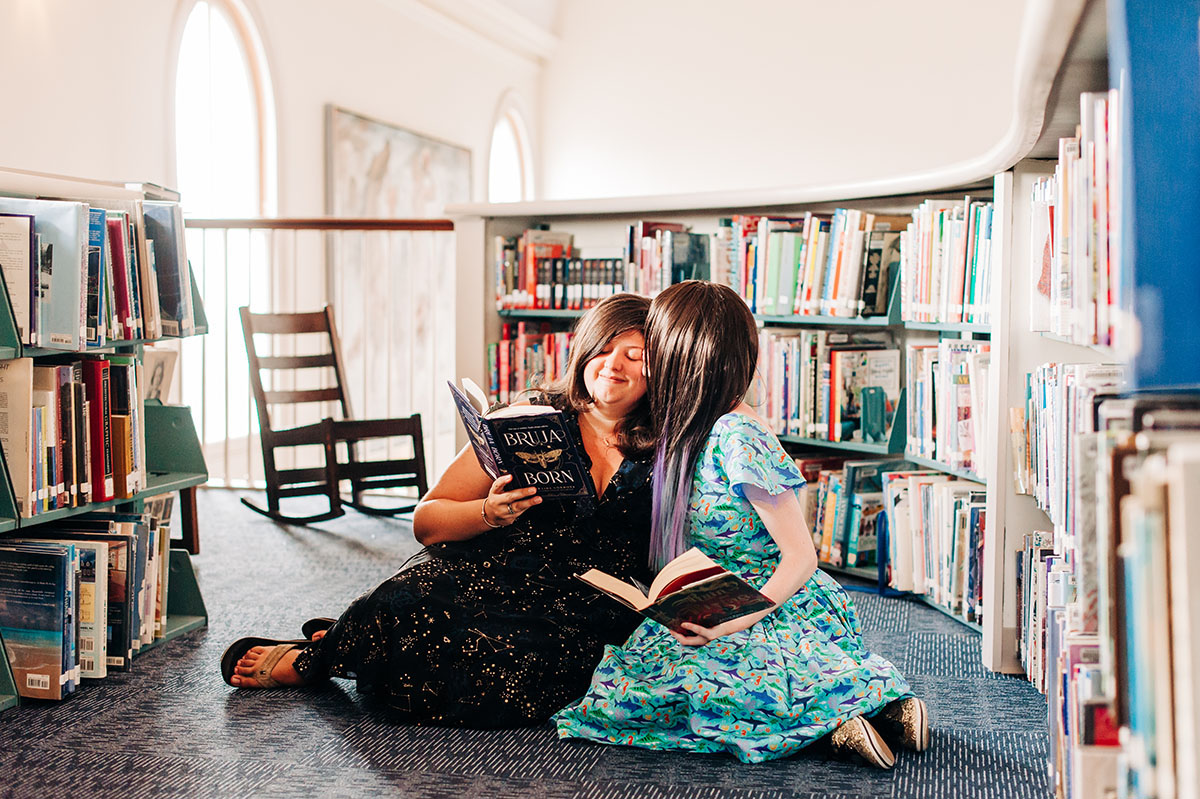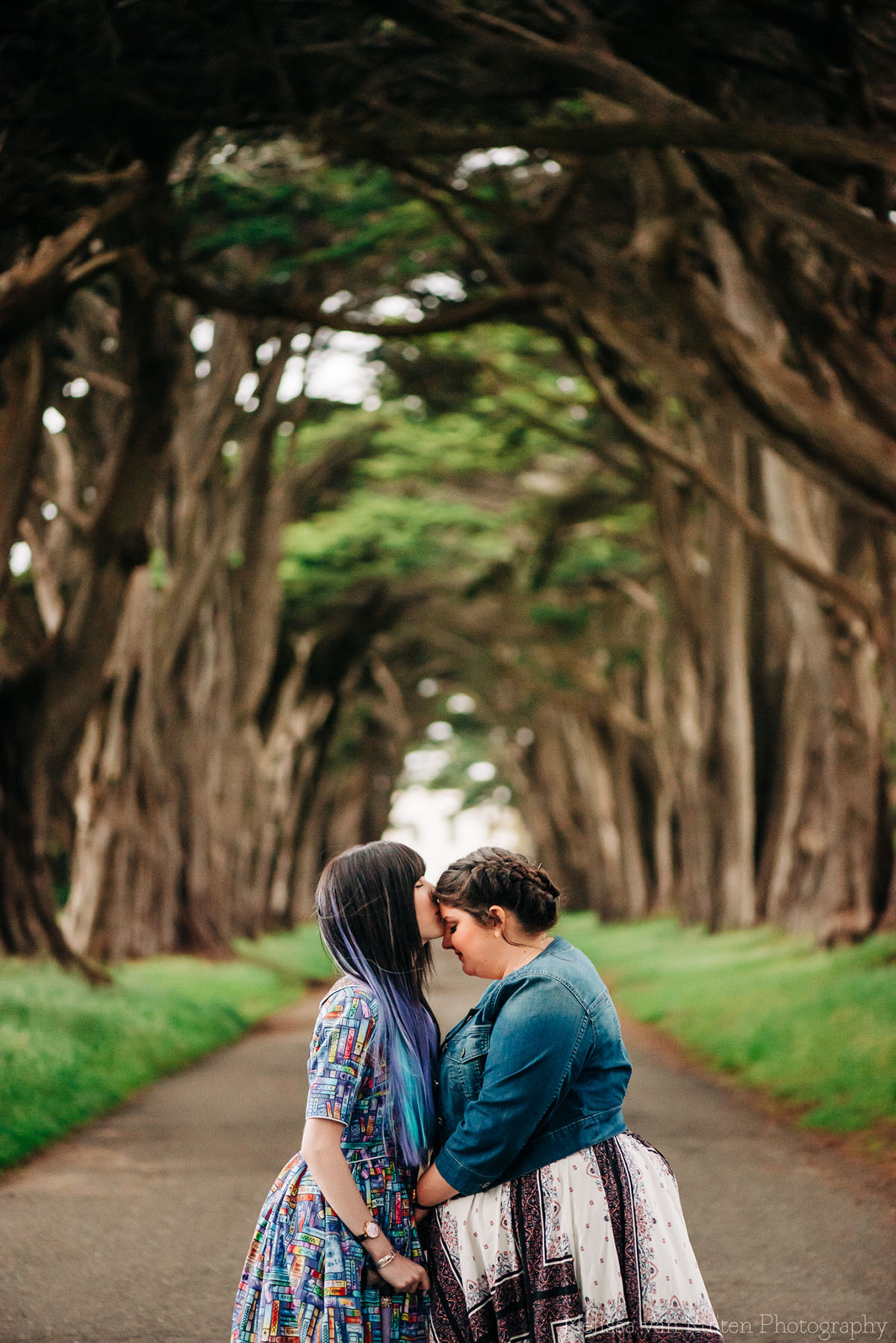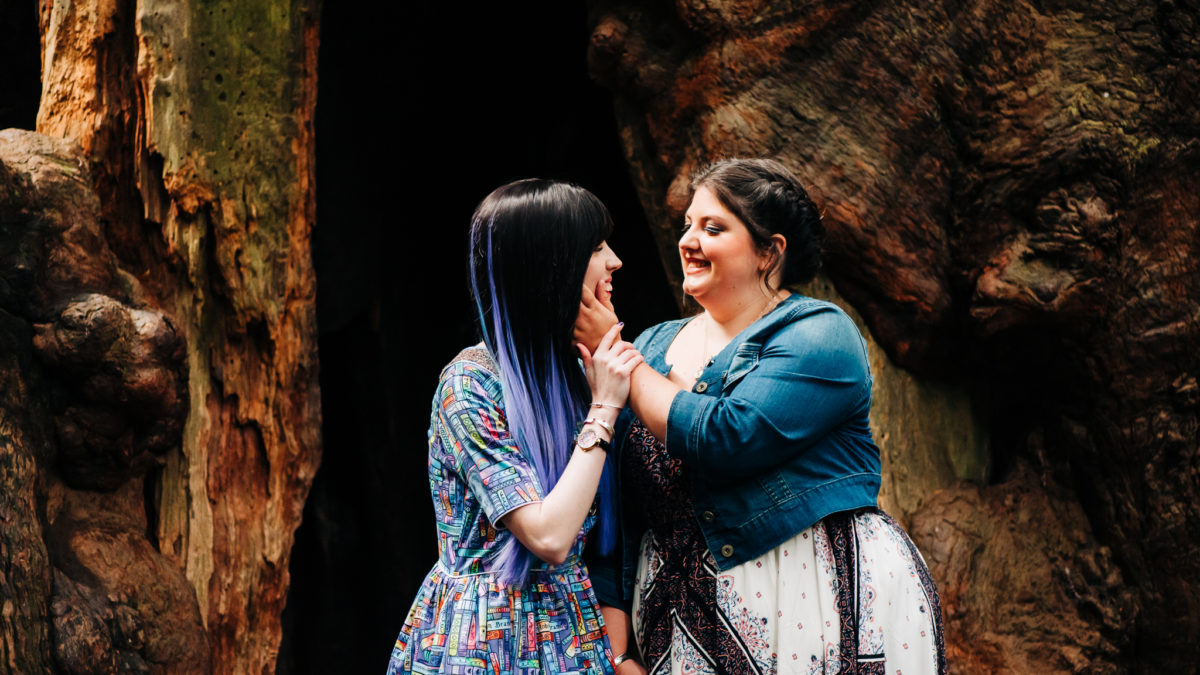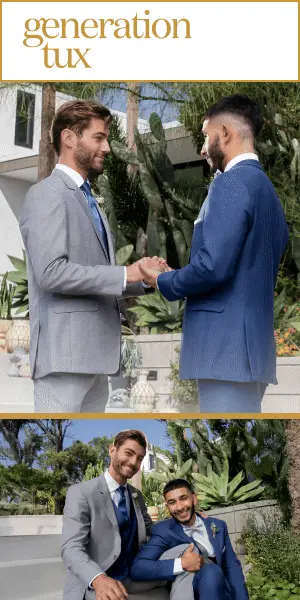When Macey, my fiancée, was born, her mom decided to give her daughter her last name instead of defaulting to Macey’s father’s last name as many parents do. Macey grew up with a Lavoie crest hanging in her grandparents’ dining room, Lavoie baseball caps and embroidered L towels in the bathroom. She’s always been proud that her mom made that choice.
When Macey and I moved in together three years ago and started having serious conversations about marriage, we couldn’t seem to agree on names. She wanted to keep her last name because it means so much to her. I wanted to keep mine or create our own last name entirely—a transition I knew I could easily make because I legally changed my first name when I was twenty-one. I felt strongly about not hyphenating our names (especially because Leary-Lavoie is a mouthful) and about having the same last name as my wife and the children we hope to raise.

When Macey and I got engaged, we realized that we needed to come to a decision. Names are fluid and can be changed at any time, but I’ve already been through that process as an adult and it’s expensive, inefficient and paperwork-heavy. I wanted to figure out our name situation so we could make the change when we get married, and so I have time to adjust.
RELATED: I PROPOSED TO MY HIGH SCHOOL SWEETHEART—HERE’S HOW WE MAKE IT WORK
I wanted to be an active participant in the decision about our last names. When I changed my first name, it was one of the few times in my life that I’ve made a choice just for me, without factoring in how anyone else feels about it. It was a confident, feminist choice and it meant taking ownership and consent over my identity in a way that I’d never done before. Even in my own coming out process, I’ve let other people cast doubts and redefine my sexuality and gender identity based on their own assumptions and expectations (“Well, you’re dating a woman so you’re not really bi!” or “You won’t know for certain until you’re older”). With my name change, I didn’t leave any space for grey areas—I’m Alaina, that’s my name and people have to respect that.
My name is so much a part of my individuality that I didn’t know if I could take someone else’s name without feeling like I was giving up a part of myself.
Choosing our last names required more of a compromise. I didn’t want to keep our individual last names, although many LGBTQ+ couples do. I wanted my legal last name to be the same as Macey’s after we get married. I don’t like many heteronormative wedding traditions, but this is one of the few I actually care about.

When Macey explained to me how much her last name—and her mom’s decision—meant to her, I understood. It’s similar to how I felt when I chose to change my first name. It’s a sense of pride in making your own decisions and forging a path your own way, contrary to popular opinion or what other people are doing. When people find out that Macey has her mom’s last name, it’s an opportunity for her to tell the story and show people that we don’t all have to live by these often heteronormative societal beliefs.
I’ve always felt fiercely loyal to my own individuality and creativity. I wanted to change my name even as a kid, and my parents were on board but my dad asked me to wait until I was eighteen. I have colorful hair and a whimsical sense of style that I refuse to change for anyone, even if it means I’m the only adult in the room wearing a dress with books all over it or glitter sneakers. I’m planning to wear a purple dress at my wedding to honor my mom, who passed away when I was in middle school. My name is so much a part of my individuality, especially after changing it, that I didn’t know if I could take someone else’s name without feeling like I was giving up a part of myself. For years, I wanted us to create our own last name much as I did with Alaina because it was the kind of thing I knew all my friends and family could imagine me doing: “That’s my cousin Alaina, she made up her entire name.”
Names mean different things to each of us. I’ll always keep Marie, my middle name, because it was my mom’s. I love my parents deeply, but that didn’t stop me from exchanging the name they gave me when I was born for one that really feels like me. Even though I was originally on the fence, I’m proud to take Macey’s last name when we get married. Her name is a legacy that her mom gave her, and I feel welcomed and loved by her family. My individuality is important to me, but so are the people in my life who love me exactly as I am, the way Macey always has. I’ve been going to family celebrations and holidays for almost ten years now. This summer, Macey’s Aunt Allison threw her arms around me in a crowded Irish pub and told me how happy she was to have me in her family. Her Aunt Duck made a special breakfast for me on Christmas morning to accommodate the limited medical diet I follow to manage my disability. Her mom’s eyes lit up at dinner when we told her our decision about our names, although she tried to sound casual about her excitement.
RELATED: HERE’S WHAT IT’S ACTUALLY LIKE TO PLAN A WEDDING WHEN YOU HAVE A DISABILITY
At first, I didn’t think there was a way I could take someone else’s name without feeling like I was giving up my individuality, but now I realize that community is a huge part of who I am. My community is made up of my family of origin, my chosen family, my close and extended friends and Macey’s family. On the first Christmas Eve she and I spent together, her family told us about how they plan to live together on the beach when they retire. They included me (and my dad) in their imagined future. That future is getting closer, and I’m proud to spend it signing my name Alaina Lavoie.
Fin Leary
MOST VIEWED STORIES
- The Rise of Weddings With Long-Lasting Investments: Benefits Beyond The Big Day
- How to have a green wedding that Mother Earth would attend
- Simplify wedding communication with digital engagement announcements and thank you cards
- A Spiritual and Earthy Elopement at Lassen Volcanic National Park
- Food Trucks, Craft Booze and Cultural Fusions: How New England Weddings Are Changing the Game



























